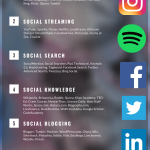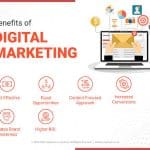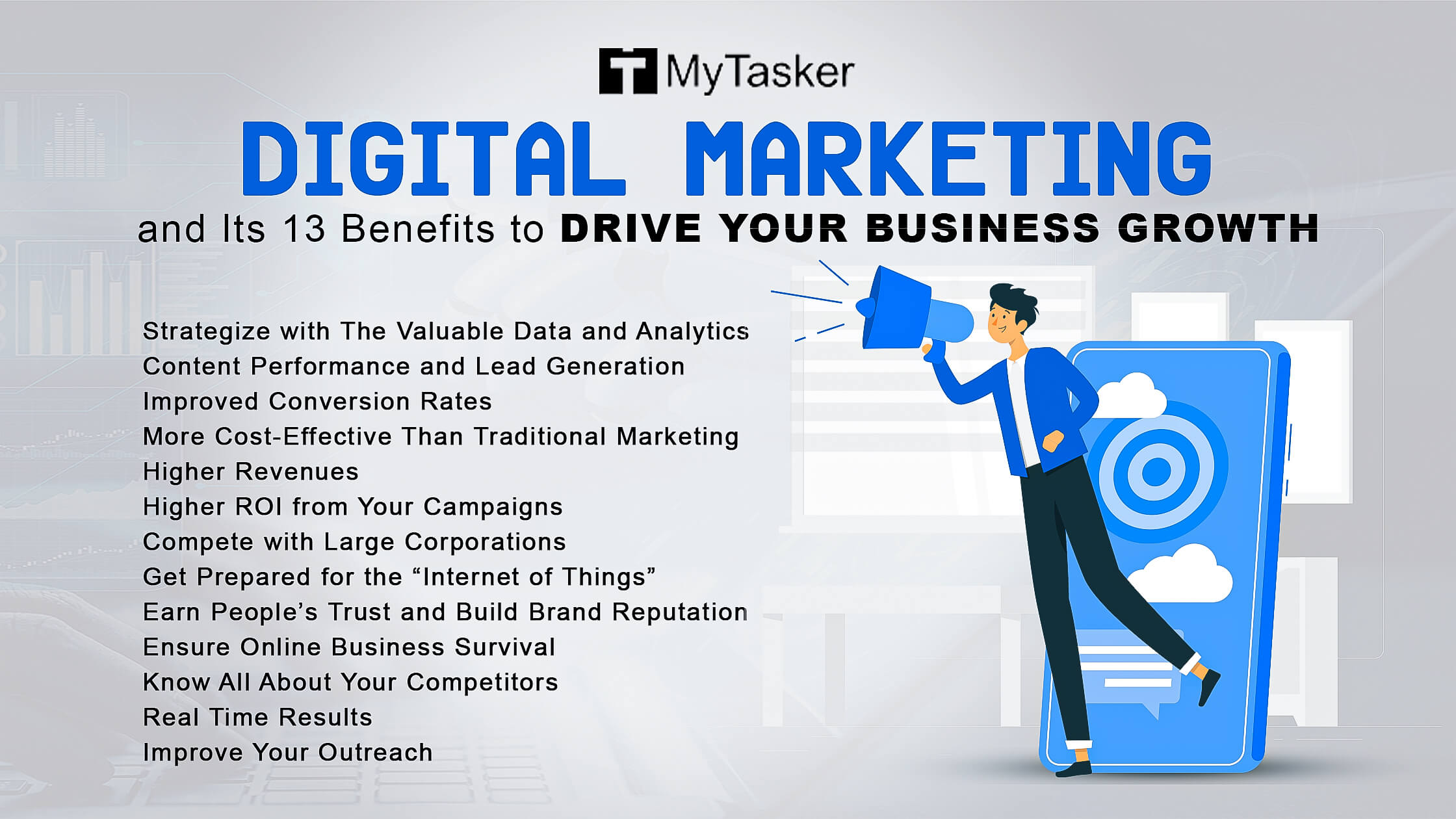Understanding the Basic Concept of Digital Marketing
Digital marketing, often referred to as online marketing, is a crucial part of any successful business. It involves the use of various digital channels such as search engines, social media, email, and websites to promote a product or service.
One of the main components of digital marketing is Search Engine Optimization (SEO). It acts as the backbone of all digital marketing strategies. SEO involves optimizing a website to increase its visibility for relevant searches. The better visibility your pages have in search results, the more likely you are to garner attention and attract prospective and existing customers to your business.
Forms of Digital Marketing
- Email Marketing: This is a form of direct marketing where businesses send promotional messages via email to a group of people who have signed up to receive them.
- Social Media Marketing: It refers to the process of gaining traffic or attention through social media sites.
- Content Marketing: This focuses on creating valuable, relevant, and consistent content to attract and retain a clearly-defined audience and ultimately drive profitable customer action.
- Affiliate Marketing: This involves a long-term commitment and pays off over time. You partner with affiliates who promote your brand and products and pay them for every sale or lead they drive.
In a nutshell, understanding and leveraging the power of digital marketing can give a huge boost to your business resources and can lead to substantial growth. It’s about reaching existing and potential customers, engaging them, converting them into leads, and then retaining them as loyal customers.
Key Components of Digital Marketing
When it comes to the digital age, there is no denying the prominence of online spaces in promoting businesses or services. This is where Digital Marketing steps into the game, allowing businesses to utilize the digital landscape for maximum reach. The core of digital marketing is comprised of several key components, each playing a significant role in the effectiveness of a marketing strategy.
Search Engine Optimization (SEO)
The first crucial component of digital marketing is Search Engine Optimization (SEO), which focuses on enhancing a website’s visibility through organic search engine results. It relies heavily on the use of relevant keywords, ensuring that content aligns with what potential customers might search for in search engines. It’s the effort to optimize your website to ‘rank’ higher in search engine results pages and increase the amount of organic (or free) traffic your website receives.
 Understanding Social Media Marketing: What It Is and Why It Matters
Understanding Social Media Marketing: What It Is and Why It MattersSocial Media Marketing
Another pillar of digital marketing is Social Media Marketing. With billions of active users across various platforms such as Facebook, Instagram, Twitter, and LinkedIn, businesses can target a broad audience with tailored content. These platforms also provide comprehensive insights and analytics to measure the performance and outreach of the marketing efforts.
Email Marketing
Email Marketing, though often overlooked, remains a key component. It involves targeting potential customers through personalised emails. This strategy ensures a direct and personal way of reaching customers, fostering relationships, sharing exclusive deals and providing updates about your business or services.
Advantages of Implementing Digital Marketing Strategies
Implementing digital marketing strategies in your business has a myriad of advantages. In the era we are living in, where technology is omnipresent, effective digital marketing can be the difference between success and failure. Let’s delve into the inherent benefits of these strategies.
Cost-Effectiveness
One of the primary advantages of implementing digital marketing strategies is the cost effectiveness. Traditional marketing methods like print ads, billboards, or TV commercials can be expensive. On the contradiction, digital marketing methods such as PPC, email marketing, social media marketing are less costly and reach a broader audience in a short span of time.
Measurable Results
Another significant advantage is that digital marketing provides easily measurable results. With traditional marketing, it’s difficult to track the success of a campaign, but in digital marketing, you have access to real-time data. You can monitor which strategies are working and which ones aren’t, enabling you to adjust your strategies accordingly.
 Understanding Social Media Marketing: What It Is and Why It Matters
Understanding Social Media Marketing: What It Is and Why It Matters Understanding the Basics: What is Traditional Marketing?
Understanding the Basics: What is Traditional Marketing?Targeted Audience
Lastly, digital marketing allows for precise targeting. Unlike traditional methods, where messages are broadcasted to the general public, digital marketing allows businesses to focus their efforts on the audience who are most likely to purchase their products or services. This not only improves effectiveness, but also increases return on investment.
How Digital Marketing Adds Value to Your Business
With the advancement of technology, businesses are shifting their marketing strategies towards digital platforms. Digital marketing has shown a considerable rise in its effectiveness over the traditional methods, owing to the widespread use of the internet. It aids in giving your business a substantial digital presence, promoting your products and services to a broader spectrum of potential customers, and thus, adding value to your business.
The Reach of Digital Marketing
One of the main assets of digital marketing is its far-reaching capabilities. Traditional marketing strategies were often confined to limited regions, making it difficult for businesses to expand their customer base beyond a certain limit. With digital marketing, this barrier is uprooted. Your business can be accessed by anyone around the globe, ensuring maximum exposure and potentially greater sales.
The Efficiency of Digital Marketing
Digital marketing strategies are highly efficient in their execution. They allow businesses to focus on their target audience explicitly, making sure your products and services are exposed to those more likely to become your customers. Beyond this, digital marketing also allows for real-time adjustments. Changes can be made to your campaigns based on immediate feedback and analysis, making it a highly flexible and adaptable marketing tool.
Engagement and Interaction
Another value that digital marketing adds is the increased engagement with potential customers. Within the digital sphere, businesses can interact directly with their audience through social media reactions, comments, shares, and direct messages. This interaction enhances customer trust, builds stronger relationships, and ultimately, increases the worth of your business.
 Understanding Social Media Marketing: What It Is and Why It Matters
Understanding Social Media Marketing: What It Is and Why It Matters Understanding the Basics: What is Traditional Marketing?
Understanding the Basics: What is Traditional Marketing? Understanding the Basics: What is Web Marketing and How It Can Boost Your Business
Understanding the Basics: What is Web Marketing and How It Can Boost Your BusinessMeasurable Results: A Major Advantage of Digital Marketing
Digital marketing has truly revolutionized the way businesses promote their products and services. One of the standout advantages of this method is the inherent ability to yield measurable results. Essentially, the digital platform comes with numerous tools that enable businesses to track and analyze their performance instantly.
Real-time Tracking and Adjustments
The importance of real-time tracking can’t be overstated in today’s dynamic business world. The wide array of comprehensive digital analytics tools provides an in-depth view of the customer’s interaction with your brand. Whether it’s the customer’s first interaction or they are returning, you can track everything. This allows businesses to make data-driven decisions and corrections on the fly, which help optimize their marketing strategies.
A/B testing and Conversion Tracking
Another critical area where the measurable results of digital marketing take the spotlight is in A/B testing and conversion tracking. A/B testing allows a business to compare two versions of a web page, ad, or other content to see which performs better. On the other hand, conversion tracking enables you to monitor how many visitors complete a desired action, such as making a purchase or signing up for a newsletter. Thorough data analysis provides insights into what works and what doesn’t, paving the way for maximizing return on investment.
Understanding Your Audience
The measurable results from digital marketing go beyond plain numbers; they provide a clear picture of who your audience is, their interests, behaviors, and trends. This information is crucial as it can help refine your marketing efforts to better resonate with your target customers. Thus, measurable results from digital marketing are not just numbers, but valuable information that can significantly contribute to business growth and success.
 Understanding Social Media Marketing: What It Is and Why It Matters
Understanding Social Media Marketing: What It Is and Why It Matters Understanding the Basics: What is Traditional Marketing?
Understanding the Basics: What is Traditional Marketing? Understanding the Basics: What is Web Marketing and How It Can Boost Your Business
Understanding the Basics: What is Web Marketing and How It Can Boost Your Business Exploring the Various Types of Digital Marketing: A Comprehensive Guide
Exploring the Various Types of Digital Marketing: A Comprehensive Guide